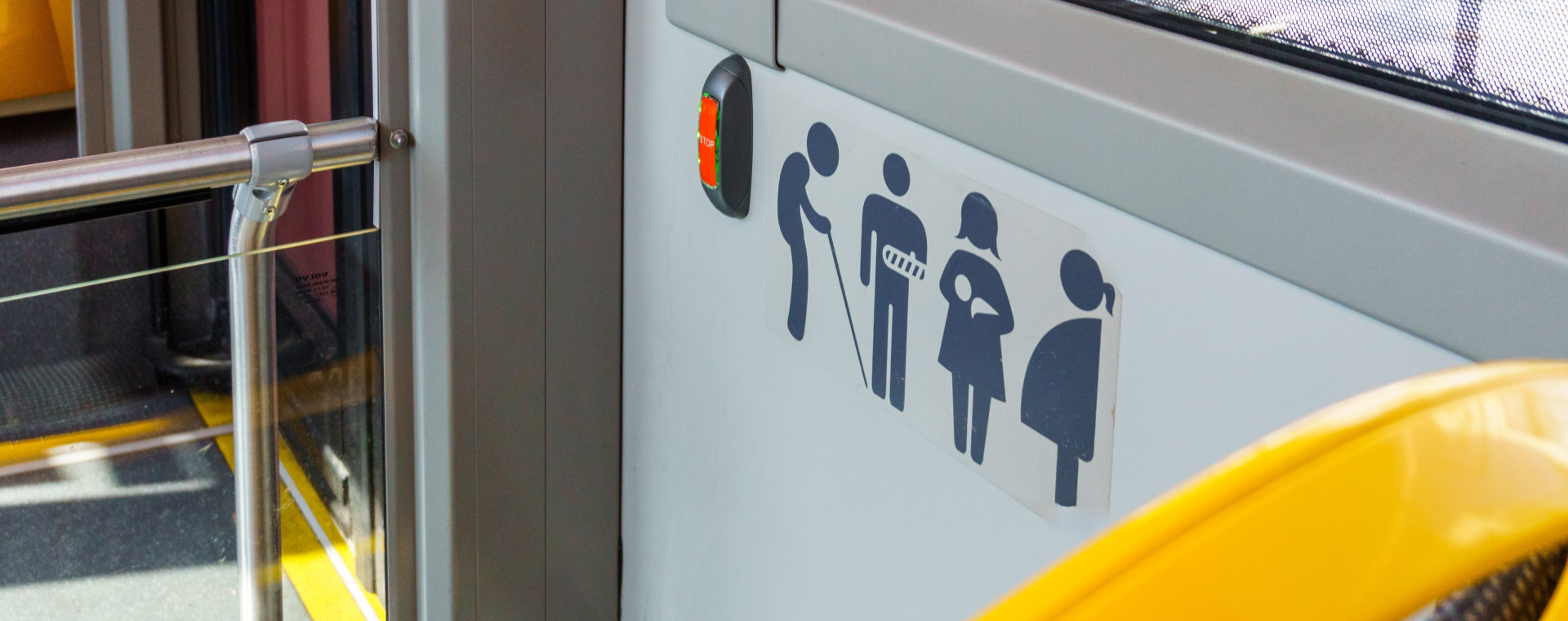Insights
Access
Mobility for all: The inclusion challenge

Why decarbonized mobility needs a strong social component
Decision makers need to ensure that the future of mobility, and decarbonization of the transport sector, include low income areas and people living outside of cities, experts told the Mobility Sphere's first forum in Amsterdam in October 2023. Any failure to make mobility inclusive could have dramatic consequences for our societies if large parts of the population feel they are being left behind, they said.
“Successful mobility has to be inclusive,” said Zeina Nazer, co-founder of Cities Forum. “Everybody needs equal rights to move from home to school, to work or to run errands,” she said.
Most efforts towards increasing and improving public transport are happening in cities, while many people on the outskirts or in rural areas rely on cars to get around. But the future of that model is in doubt as individual ownership of cars and their carbon footprint are increasingly under scrutiny.
“We have to make sure in rural areas that you don’t need to be dependent on a car to get to a school, a shop or work,” Elke Van den Brandt, Brussels Minister responsible for Mobility, told The Mobility
Times in an interview during the Amsterdam forum.
But while wealthier inhabitants may be able to make the switch to an electric car relatively easily, that option is not open to everybody. Many risk getting cut off from transport altogether if they can no longer use their car, and lose work opportunities.
The stakes are high, said Karima Delli, Euro MP and Chair of the Transport Committee. “If we fail to solve the climate question and the social question at the same time we will create dramatic divisions in our societies,” she said.
Such divisions could create more movements like the Yellow Vests (Gilets Jaunes) in France that started out as a protest against a carbon tax and grew into a wide movement of social discontent. Another risk is political, with social dissatisfaction favouring populists parties.
“What we are trying to prevent is the green transition and European Green Deal on decarbonization becoming a controversial topic like migration,” said Katarina Csefalvayova, Director of the Institute for Central Europe and Executive Lead of the Danube Tech Valley Initiative.
“We must make sure that people are well-informed and that they do not feel that they have been left out of the process, that they have a seat at the table,” she told The Mobility Times.
Experts said decision-makers must keep in mind that many people living far from city centers use their cars because public transport alternatives are not readily available. “They need more attention because they sometimes don’t have other choices than using their private cars,” said Samah Karaki, a neuro-scientist and founder of the Social Brain Institute. “We have to make sure that the most vulnerable people can continue to live full lives despite all the changes,” she said.“This is why all changes linked to the environment cannot be separated from the question of social justice,” Karaki told the Amsterdam forum.
of working people outside urban centers in France use their car to get to work (2019)
Connecting the periphery
We mustn’t neglect areas outside cities, people living outside urban centers will need to be connected to mobility networks if they are not to be left behind in the decarbonization of transport, the Mobility Sphere forum in Amsterdam heard.
Charlotte Halpern, Researcher at Sciences Po’s Centre for European Studies and Comparative Politics, believes there is a “right to mobility” for people who don’t have a viable public transport alternative to their private cars for getting to work and elsewhere.
“They depend on their cars,” Charlotte Halpern said. “We also need to think about those who do not have the means to own a car. We need to talk about how to reach out to those social groups in particular.”
“In rural areas, for example, that means ensuring that people don’t need to depend on a car to get to school, to the shops or to work”.
“Public authorities must make sure that climate targets are reached in a just way, they need to think of ways to bring the public in, but also to ensure that social groups or spatial inequalities are taken into account,” she said.
“A lot of investment has been focused on cities, on innovation in the core of cities, but not necessarily at the margins of them, not necessarily in rural areas, and in peri-urban areas.”
Inspiration from outside Europe: Bogota by bus
Bogota, the capital of Colombia, is a mega-city of 11 million inhabitants with a reputation of being welcoming, fun-loving and safe. It is also a high-profile example of what the future of clean public transport can look like.
Bogota operates the biggest fleet of electric buses in Latin America, around 1,500, and is home to the largest electric bus depot anywhere in the world outside China.
Transdev has supplied and runs a third of Bogota’s electric buses with a capacity of between 50 and 80 passengers each, and equipped with onboard cameras, USB charging, information panels and permanent transmission of data to the control center. Bogota’s electric bus network is on target to save 94,300 tons of CO2 emissions per year, the equivalent of taking 42,000 private cars off the road.
“We are putting the best technology currently available in the market at the service of citizens,” said Alvaro Jose Rengifo, director of TransMilenio, Bogota’s Bus Rapid Transit (BRT) system operated by Transdev serving 2.4 million passengers each day. Bogota gives the buses access to dedicated lanes, allowing them to avoid the city’s rush-hour congestion.
whose emissions are saved by Bogota's electric bus deployment
-
 Interview
Access
Interview
Access
How can we ensure inclusivity in green transition policies?
Colin Scicluna, Head of Cabinet for the Vice-President of the European Commission for Democracy and Demography
-
 Interview
Climate
Interview
Climate
Democracy, mobility and climate change: what’s next?
Democracy, mobility and climate change: what's next? Ulrike Guerot answers this question for The Mobility Sphere.
-
 Interview
Decarbonization
Interview
Decarbonization
What measures can we take to ensure that all individuals are included in the energy transition?
Jilian Van Der Gaag, Senior Policy Advisor at the Municipality of Amsterdam.
-
 Interview
Cars
Interview
Cars
How can cities spur the shift from private cars to public transportation?
Jilian Van Der Gaag, Senior Policy Advisor at the Municipality of Amsterdam.
-
 Interview
Access
Interview
Access
Will tomorrow’s mobility be inclusive and fair?
Dominique Riquet, Member of the European Parliament

